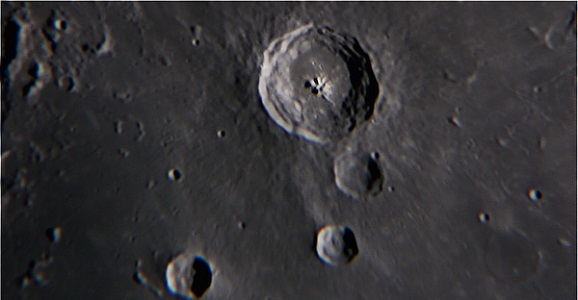Did Life Begin On Mars? New Evidence Suggests It Did
 Some people are very particular about where they come from. While I’m an American, and a Louisianan, I prefer to say I come from South Louisiana, as that definition excludes me from the ranks of all the stereotypical North Louisiana morons that are seen on reality shows. It’s a mostly useless description to anyone that doesn’t live here, but it’s a pride thing. However, it’s a moot point if it turns out we all come from Mars, as certain new evidence suggests.
Some people are very particular about where they come from. While I’m an American, and a Louisianan, I prefer to say I come from South Louisiana, as that definition excludes me from the ranks of all the stereotypical North Louisiana morons that are seen on reality shows. It’s a mostly useless description to anyone that doesn’t live here, but it’s a pride thing. However, it’s a moot point if it turns out we all come from Mars, as certain new evidence suggests.
Professor Steven Benner, of the Westheimer Institute of Science and Technology, recently presented this theory at the Goldschmidt Meeting in Florence, Italy. He poses the argument that Earth’s state three billion years ago was lacking the specifics needed to kick start complex organisms, and that it’s likely a meteorite broken off of Mars allowed for life to form in the way it did. Billions of years ago, the Earth was full of carbon-based primordial ooze, which just wasn’t capable of creating RNA (ribonucleic acid), which is thought to be the first form of genetic material to have formed. When heat or light hit the soup, it’s far more likely that instead of life, the only result would have been a goopy tar.
On the flip side, during the Earth’s water covered years, it isn’t likely that a large enough amount of boron could have been created, as it is better suited to arid climates, much like Mars. As well, RNA and water don’t make great bedfellows, and the result would have been a bunch of corroded RNA. Benner explains:
Certain elements seem able to control the propensity of organic materials to turn into tar, particularly boron and molybdenum, so we believe that minerals containing both were fundamental to life first starting…Analysis of a Martian meteorite recently showed that there was boron on Mars; we now believe that the oxidized form of molybdenum was there too.
The element molybdenum is one of the more important components of life, and it can be sourced to Mars’ climate with more assuredness than it could have here on Earth. Benner continued:
It’s only when molybdenum becomes highly oxidized that it is able to influence how early life formed…This form of molybdenum couldn’t have been available on Earth at the time life first began, because three billion years ago the surface of the Earth had very little oxygen, but Mars did. It’s yet another piece of evidence which makes it more likely life came to Earth on a Martian meteorite, rather than starting on this planet.
I don’t know how you guys feel about this, but it’s encouraging to me, as it means that planets out there in space could similarly tag team creating a habitable spot for life to form. And not a single iota of Earthling pride is sacrificed. Maybe when the Mars One team takes their mission to Mars, they can get their hands on some hardcore evidence of water on the planet. Like a bunch of plastic bottles and a Slip ‘n Slide.












